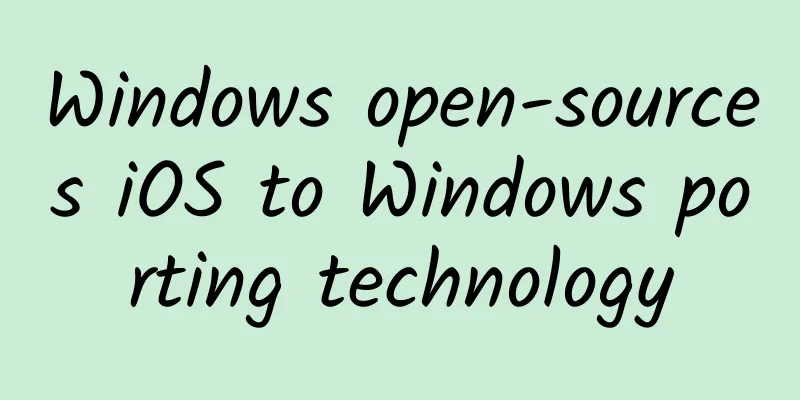Introduction to the 5 most popular embedded databases for mobile development

|
Embedded databases are lightweight, standalone libraries with no server components, no administration required, a small code size, and limited resource requirements. There are several embedded databases that you can use in your mobile applications. Let’s take a look at some of the most popular ones.
Berkeley DB Berkeley DB is an open source embedded database management system developed by Sleepycat Software of the United States (it has been acquired by Oracle). It provides scalable, high-performance, transaction-protected data management services for applications. Berkeley DB (BDB) is an efficient embedded database programming library with corresponding APIs for C, C++, Java, Perl, Python, Tcl and many other languages. Berkeley DB can save any type of key/value pairs and can save multiple data for one key. Berkeley DB supports thousands of concurrent threads operating the database at the same time and supports up to 256TB of data. It is widely used in various operating systems, including most Unix-like operating systems, Windows operating systems and real-time operating systems. Couchbase Lite Couchbase Lite is an ultra-lightweight, reliable, and secure JSON database developed for online and offline mobile applications. Even under the most uncertain network conditions, it can provide your mobile applications with productive and reliable credibility. In addition, the 'Sync Portal' feature can also provide collaboration, social interaction or user updates. Highlights of Couchbase Mobile Platform JSON Anywhere Use a flexible data model designed for object-oriented mobile apps that instantly adapts to your application needs without major changes to the application. Easy Sync (Easy Sync) Only a few lines of code are needed to get synchronization ready; allowing developers to focus more on application development rather than synchronization issues. Native APIs Manage your mobile database using APIs optimized for iOS and Android REST APIs Depending on your development needs, REST APIs provide an alternative access method. LevelDB LevelDB is a Key/Value storage engine open sourced by Google. It is written in C++ and supports high concurrent access and writing, which is particularly suitable for high-write business environments. For an overview of LevelDB, please refer to the description of LevelDB in Data Analysis and Processing 2 (Leveldb Implementation Principle). The diagrams in this article are more about the implementation layer of LevelDB, and the version is LevelDB 1.7.02. LevelDB storage is mainly divided into SSTable and MemTable. The former is immutable and stored on persistent devices, while the latter is located in memory and mutable (there are two MemTables in LevelDB, one is the current write MemTable, and the other is the immutable MemTable waiting to be persisted). First, let's look at the implementation layer analysis of SSTable. SQLite SQLite is an open source embedded relational database that implements a self-contained, zero-configuration, transactional SQL database engine. It is highly portable, easy to use, compact, efficient, and reliable. Unlike other database management systems, SQLite is very simple to install and run. In most cases, just make sure that the SQLite binary file exists to start creating, connecting, and using the database. If you are looking for an embedded database project or solution, SQLite is definitely worth considering. UnQLite UnQLite is an embedded C language software library produced by Symisc Systems, which implements a self-contained, serverless, zero-configuration, transactional NoSQL database engine. UnQLite is a document storage database similar to MongoDB, Redis, CouchDB, etc. At the same time, it is also a standard Key/Value storage, similar to BerkeleyDB and LevelDB. UnQLite is an embedded NoSQL (key/value store and document store) database engine. Unlike most other NoSQL databases, UnQLite does not have a separate server process. UnQLite reads/writes ordinary disk files directly. A complete database containing multiple data sets is stored in a single disk file. The database file format is cross-platform and a database can be freely copied between 32-bit and 64-bit systems or big-endian and little-endian architectures. The main features of UnQLite are as follows:
You can find more details on the UnQLite features page. (Think: how much of a SQLite flavor does this have?) UnQLite is a self-contained C library with no external dependencies. It requires very little external libraries or support from the operating system. It is particularly suitable for use in embedded devices and also for internal applications (those that need to run on a large number of computers without modifying various configurations). UnQLite is 100% hand-coded in ANSI C, thread-safe, fully reentrant, compiles without modification, and runs on most platforms, including constrained embedded devices, requiring only a C compiler. UnQLite has been tested on a wide range of platforms, including Windows and UNIX systems, especially Linux, FreeBSD, Oracle Solaris, and Mac OS X. UnQLite is a standard key/value store, similar to BerkeleyDB and LevelDB. However, it has a richer feature set, including support for transactions (ACID), concurrent reads, etc. In KV storage, keys and values are treated as simple byte arrays, so the content can be anything, including ASCII strings, binary objects, and disk files. Applications can access the KV layer through interface APIs, including
etc. UnQLite's document storage interface for storing JSON documents (e.g., objects, arrays, strings, etc.) in a database is supported/implemented by the Jx9 programming language. Jx9 is an embedded scripting language, also called an extension language, designed for general procedural programming with data representation features. Jx9 is a Turing-Complete, JSON-based, dynamically typed programming language that exists as a library for the UnQLite kernel. In short, UnQLite is an open source software, open source under the 2-Clause BSD license. |
<<: iPhone 6: The pain of mobile phone design revealed
>>: Alternative fun: 10 programming language features that confuse programmers
Recommend
He may have drawn more pictures than you have walked.
Although he is over 90 years old, Chen Yu, former...
Is it okay to dump spent fuel and nuclear waste from nuclear power plants into the crater of an active volcano? What kind of black technology is ADS?
Nuclear power plants will inevitably produce nucl...
There is an overabundance of wild boars in Germany and no one dares to eat them because the nuclear radiation in their bodies exceeds the standard by 11 times. Is the source actually a nuclear explosion?
In Bavaria, Germany, during the hunting season, h...
Will the May Day Expressway be free in 2022? How many days is it free? Attached is the latest notice on free passage time!
There are two short holidays in April and May ever...
Using Internet thinking to see LeTV TV's breakthrough in 4K
Nowadays, "Internet thinking" has becom...
How much does it cost to be an agent for a decoration mini program in Foshan?
Is it easy to be an agent of Foshan decoration mi...
10 major channels tell you how to do a good job in APP overseas promotion!
Channel 1: Search Engine Promotion There are many...
Starting from the fission activity, how to divert traffic to the Double Eleven activity through the official account
For public accounts , the difficulty is not how t...
Luo Yonghao's Hammer: The low-end model with no physical buttons is only 899 yuan
[[143983]] It was previously reported that the Sm...
Shifang SEO training: How to do SEO diagnosis? What are the methods to steadily increase website rankings?
First of all, everyone must understand that this ...
What does nostalgic copywriting that resonates with people and is easy to spread look like?
In recent years, a large number of "time-hon...
How to use the Guangzhou maternal and child mini program? How to promote the maternal and child mini program mall?
After the country relaxed the "three-child p...
I just realized that Chinese people drink hot water to “save lives”!
Audit expert: Wang Guoyi Postdoctoral fellow in N...
How to safely get vitamin D from the sun?
Vitamin D is essential for our health. It helps m...
Microsoft WP survival dilemma: mobile phone manufacturers publicly abandon the brand or it will disappear
The gap between WP and Android and iOS market sha...









